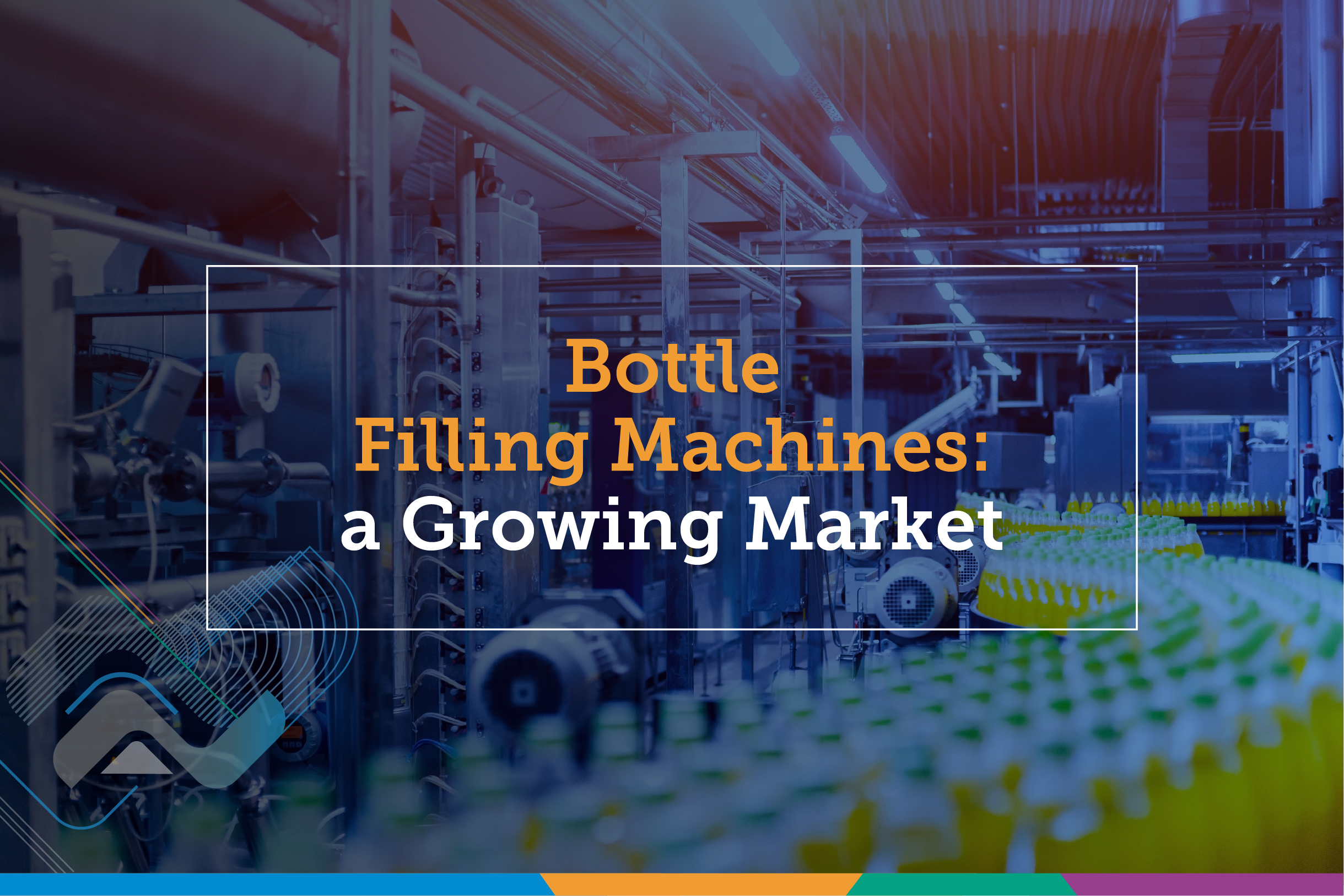
Bottle Filling Machines: a Growing Market
Across the world, bottles account for one-third of the world’s rigid packaging market. Bottles have always been preferred for consumable and industrial liquids and their use is expected to grow despite increasing shift to flexible packaging.
Bottle filling machines are available primarily in automatic and semiautomatic versions, however some manufacturers are using custom filling & packaging systems to improve the efficiency of their operations. Driving the market for bottle filling machines is the growing demand for bottle packaging which mainly includes PET and glass bottles.
PET bottle market
Polyethylene terephthalate (PET) refers to a thermoplastic polymer resin of the polyester family which is widely used for manufacturing plastic bottles. In comparison with PP, HDPE and PVC bottles, PET bottles are more durable, transparent, lightweight, non-reactive, cost-effective and thermally stable. Moreover, they are environment-friendly and can be recycled repeatedly which further reduces their manufacturing cost. Primarily used in the packaging of drinking water and beverages, PET bottles are also gaining prominence as a packaging solution for salad dressings, household cleaners, medicines, dish detergents and mouthwashes.
According to imarc, the global PET bottle market reached a volume of more than 17 Million Tons in 2018, and is further projected to reach a volume of nearly 19 Million Tons by 2024.
Although there are growing concerns about plastic packaging, advancements in technology have created a positive outlook for the PET bottle market. For instance, manufacturers have introduced a plasma-based coating which makes PET bottles more impervious in nature. Apart from this, they have also started utilizing silver to increase the product shelf life. In Germany, manufacturers are inventing new interior coating processes like FreshSafe PET that makes bottle-to-bottle recycling possible.
Glass bottle market
Glass is a recyclable packaging material with superior attributes that include hygiene, reusability, chemical stability, durability and the capability to preserve the aroma, strength and flavor of the product. It is also eco-friendly, water-proof, and can be moulded into aesthetically pleasing shapes which makes it the preferred option for packaging beverages, food products, pharmaceuticals, cosmetics and chemicals.
As per Glass Container Market Research Report 2019 from Market Research Future, the glass bottles and containers market was valued at USD 62.01 million in 2018, and it is expected to reach a value of USD 76.16 million by 2024, at a CAGR of 4.20% over the forecast period 2019-2024. Europe is the largest glass bottle container market, primarily because it is the largest alcohol and beer producing region of the world.
Bottle Filling Machines
Broadly speaking, bottle filling machines are of two types: Rotary and Inline. The type of machine depends on the product to be filled. For example, a bottle filling machine that fills bottled water cannot be used for filling cold cream; nor can a bottle filling line for liquid chemicals be used for dairy products. The choice of filling machine depends on the range of viscosities, temperature, particulate size, chemical compatibility, hazardous environment considerations, etc.
Some of the dynamics driving the Bottle Filling Machine market are:
- Improving supply chain capabilities which enable manufacturers to penetrate new markets and regions.
- Increased consumption/demand for alcoholic and non-alcoholic beverages across the globe
- Increasing penetration of modern retail outlets
- Rising trend of Westernization, changing food habits and increasing disposable income, especially in the Asia-Pacific region (excluding Japan)
- Hectic urban lifestyles that make consumers opt for on-the-go beverages
- Growing preference for bottle packaging for chemicals and other liquids
These factors are also generating the need for using different machines for filling different type of products which in turn, are pushing up the demand for bottle filling machines. So for bottle filling machine manufacturers, who can provide machines for diverse products, and in economical to high-end models, the prospects look bright.

0 comment